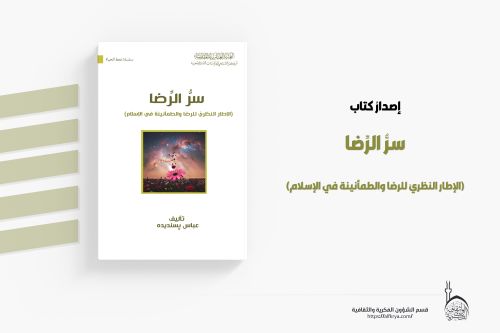

Grammar


Tenses


Present

Present Simple

Present Continuous

Present Perfect

Present Perfect Continuous


Past

Past Continuous

Past Perfect

Past Perfect Continuous

Past Simple


Future

Future Simple

Future Continuous

Future Perfect

Future Perfect Continuous

Passive and Active


Parts Of Speech


Nouns

Countable and uncountable nouns

Verbal nouns

Singular and Plural nouns

Proper nouns

Nouns gender

Nouns definition

Concrete nouns

Abstract nouns

Common nouns

Collective nouns

Definition Of Nouns


Verbs

Stative and dynamic verbs

Finite and nonfinite verbs

To be verbs

Transitive and intransitive verbs

Auxiliary verbs

Modal verbs

Regular and irregular verbs

Action verbs


Adverbs

Relative adverbs

Interrogative adverbs

Adverbs of time

Adverbs of place

Adverbs of reason

Adverbs of quantity

Adverbs of manner

Adverbs of frequency

Adverbs of affirmation


Adjectives

Quantitative adjective

Proper adjective

Possessive adjective

Numeral adjective

Interrogative adjective

Distributive adjective

Descriptive adjective

Demonstrative adjective


Pronouns

Subject pronoun

Relative pronoun

Reflexive pronoun

Reciprocal pronoun

Possessive pronoun

Personal pronoun

Interrogative pronoun

Indefinite pronoun

Emphatic pronoun

Distributive pronoun

Demonstrative pronoun


Pre Position


Preposition by function

Time preposition

Reason preposition

Possession preposition

Place preposition

Phrases preposition

Origin preposition

Measure preposition

Direction preposition

Contrast preposition

Agent preposition


Preposition by construction

Simple preposition

Phrase preposition

Double preposition

Compound preposition


Conjunctions

Subordinating conjunction

Correlative conjunction

Coordinating conjunction

Conjunctive adverbs


Interjections

Express calling interjection


Grammar Rules

Preference

Requests and offers

wishes

Be used to

Some and any

Could have done

Describing people

Giving advices

Possession

Comparative and superlative

Giving Reason

Making Suggestions

Apologizing

Forming questions

Since and for

Directions

Obligation

Adverbials

invitation

Articles

Imaginary condition

Zero conditional

First conditional

Second conditional

Third conditional

Reported speech


Linguistics

Phonetics

Phonology


Semantics


Pragmatics

Linguistics fields

Syntax

Morphology

Semantics

pragmatics

History

Writing

Grammar

Phonetics and Phonology

Semiotics


Reading Comprehension

Elementary

Intermediate

Advanced


Teaching Methods

Teaching Strategies
Consonants in SING
المؤلف:
Joan Beal
المصدر:
A Handbook Of Varieties Of English Phonology
الجزء والصفحة:
127-6
2024-02-26
1206
Consonants
 in SING
in SING
This phoneme is not part of the inventory of dialects in the south-western corner of the North as here defined, i.e. from Liverpool and South Lancashire as far across as Sheffield. Here,  is only ever pronounced before a velar consonant, e.g. in singing
is only ever pronounced before a velar consonant, e.g. in singing  . Thus
. Thus  in these varieties is an allophonic variant of /n/. Speakers in other parts of the North would often have
in these varieties is an allophonic variant of /n/. Speakers in other parts of the North would often have  for the bound morpheme -ing, but would have
for the bound morpheme -ing, but would have  elsewhere, thus singing would be
elsewhere, thus singing would be  . In the areas which retain the velar nasal plus pronunciation,
. In the areas which retain the velar nasal plus pronunciation,  occurs as a less careful, stigmatized variant, whilst
occurs as a less careful, stigmatized variant, whilst  is perceived as correct, almost certainly because of the spelling. The
is perceived as correct, almost certainly because of the spelling. The  pronunciation was not perceived as incorrect until the later 18th century, when it began to be proscribed in pronouncing dictionaries. John Rice in his Introduction to the Art of Reading with Energy and Propriety (1765) writes that whilst /in/ is “taught in many of Our Grammars” it is “a viscious and indistinct Method of Pronunciation, and ought to be avoided”. However, well into the 20th century, this pronunciation was also perceived to be stereotypical of the English aristocracy, whose favorite pastimes were huntin’, shootin’ and fishin’. In the words something and anything, a variant pronunciation
pronunciation was not perceived as incorrect until the later 18th century, when it began to be proscribed in pronouncing dictionaries. John Rice in his Introduction to the Art of Reading with Energy and Propriety (1765) writes that whilst /in/ is “taught in many of Our Grammars” it is “a viscious and indistinct Method of Pronunciation, and ought to be avoided”. However, well into the 20th century, this pronunciation was also perceived to be stereotypical of the English aristocracy, whose favorite pastimes were huntin’, shootin’ and fishin’. In the words something and anything, a variant pronunciation  is heard throughout the North, though in the North-east, the nasal may be dropped altogether to give
is heard throughout the North, though in the North-east, the nasal may be dropped altogether to give  . These words are not used in traditional northern dialects, where the equivalents would be summat and nowt, so the
. These words are not used in traditional northern dialects, where the equivalents would be summat and nowt, so the  pronunciation here is perhaps hypercorrect.
pronunciation here is perhaps hypercorrect.















 قسم الشؤون الفكرية يصدر مجموعة قصصية بعنوان (قلوب بلا مأوى)
قسم الشؤون الفكرية يصدر مجموعة قصصية بعنوان (قلوب بلا مأوى) قسم الشؤون الفكرية يصدر مجموعة قصصية بعنوان (قلوب بلا مأوى)
قسم الشؤون الفكرية يصدر مجموعة قصصية بعنوان (قلوب بلا مأوى) قسم الشؤون الفكرية يصدر كتاب (سر الرضا) ضمن سلسلة (نمط الحياة)
قسم الشؤون الفكرية يصدر كتاب (سر الرضا) ضمن سلسلة (نمط الحياة)

















